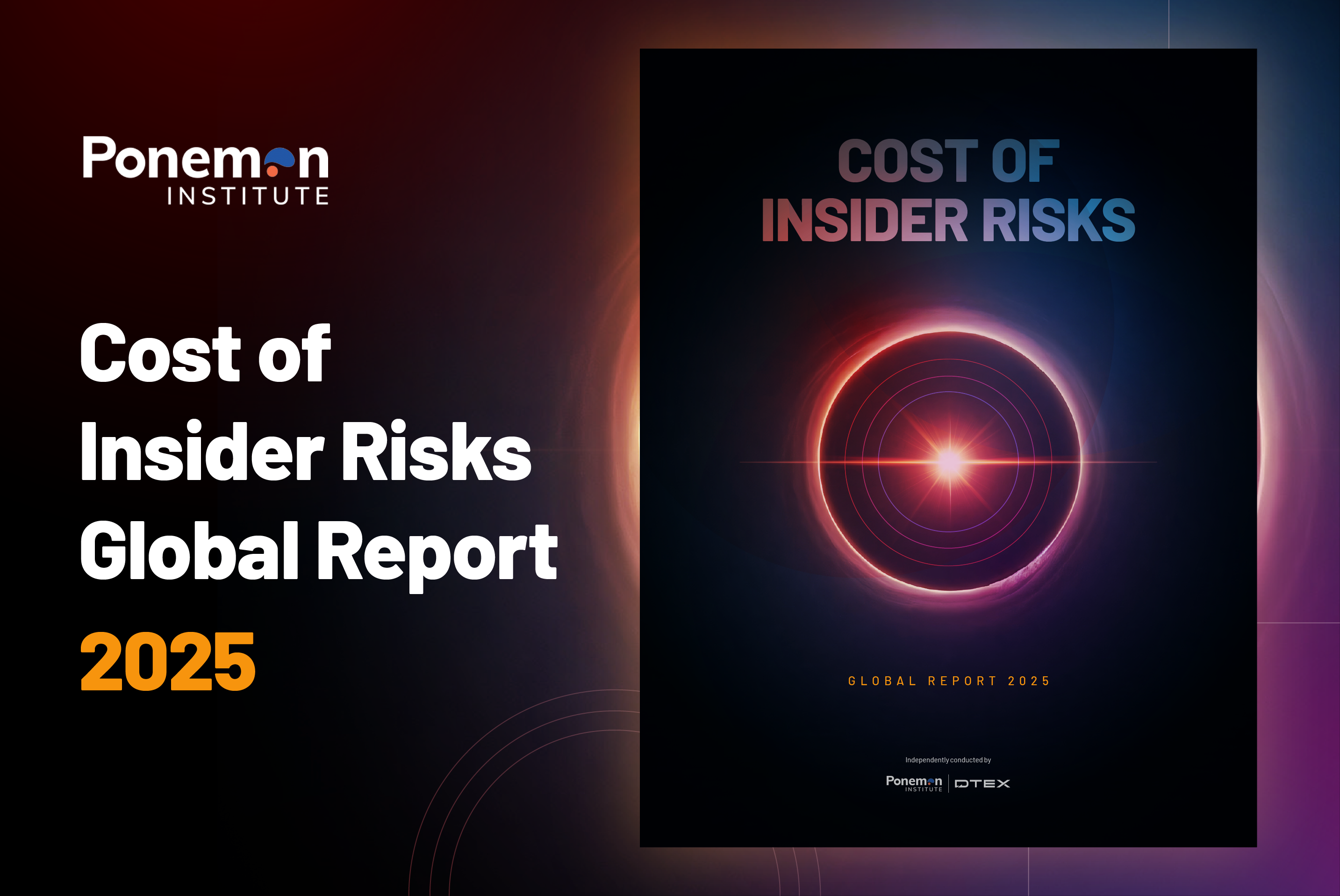SAN JOSE, Calif. – June 23, 2021 – DTEX Systems, the Workforce Cyber Intelligence CompanyTM, today announced its inaugural State of Workforce Privacy & Risk Report, which revealed a significant workforce privacy gap. The 2021 report, conducted by the Ponemon Institute with sponsorship from DTEX, surveyed a global pool of 1,249 IT and IT security practitioners on their organizations’ approach to securing sensitive information and reducing workforce risks. According to the findings, 63% of respondents say it is important or very important to protect employees’ privacy in the workforce, but only 34% of organizations are effective or very effective in doing so.
The research also found that most organizations have a difficult time balancing workforce privacy with the growing perceptions around the need to monitor employee engagement and internal risk, given the shift to remote work. Sixty-four percent of respondents said that it is difficult to track employee activity and performance without affecting their morale or trust in the organization. At the same time, 53% of companies believe their employees expect their personal behaviors and activities will remain private, but less than half (47%) anonymize the employee data they collect while monitoring for security risk and operational performance.
“A key takeaway from this research is that workforce privacy must be a top priority, not simply just a feel good goal,” said DTEX Systems Chief Customer Officer, Rajan Koo. “The workforce is a source of incredible intelligence, yet organizations continue to fall into a “big brother” surveillance approach that erodes trust and transparency. Draconian tech solutions in the marketplace are only worsening this problem. The findings of this report make it clear – a reckoning is coming.”
To mitigate risk without affecting employee trust, organizations should be mindful of collecting data anonymously and minimize the amount of data being collected. According to this report, 65% of respondents say collecting more data than necessary can overtax endpoints and the network, negatively affecting employee productivity.
“Our findings illustrate that organizations need a new approach to workforce privacy, one that embraces the long-standing privacy-by-design approach both in philosophy and in the technology chosen to harvest workforce intelligence,” said Larry Ponemon, Research Director and President of the Ponemon Institute. “This is supported by the fact that only 38% of respondents said their organizations have the right technologies to mitigate risks and promote efficiency without invading personal privacy. With the other 62% of organizations missing the mark, it’s critical employers shift their mindset about why and how they learn from their workforce.”
Additional results from the survey further illustrate the workforce privacy gap:
- Despite the fact that 58% of organizations minimize the amount of data collected about employees, less than half (49%) provide transparency about what information is collected about employees onsite and in remote locations;
- Only thirty-five percent of organizations enable their employees to express any concerns about the protection of their privacy in remote locations; and
- Less than half (43%) of organizations use technologies that increase employee trust in the monitoring of access and use of sensitive information.
Workforce Cyber Intelligence TM from DTEX, a new approach to enterprise workforce data collection and analysis, focuses on understanding how, when, why, where and for how long employees and third parties interact with data, machines, applications and their peers as they perform their job responsibilities to create a safer, smarter and more secure enterprise. This solution was designed for today’s modern, distributed workforce model and provides complete visibility into user and account activity – keeping all data anonymous to protect privacy, and only shining a light on abnormal or inefficient behaviors that indicate risks and areas for operational improvement.
“This friction between employee privacy and organizational security has only been exacerbated in the wake of COVID and the shift to remote work,” continued Koo. “Solutions like Workforce Cyber Intelligence platforms are the answer to finding mutually beneficial employee-employer equilibrium to fill the widening employee privacy gap.”
To review the full 2021 State of Workforce Privacy & Risk Report, please visit: https://www2.dtexsystems.com/ponemon-workforce-privacy-report
About DTEX Systems
DTEX Systems helps hundreds of organizations worldwide better understand their workforce, protect their data and make human-centric operational investments. Its Workforce Cyber Intelligence platform brings together UEBA, endpoint DLP, digital forensics, employee monitoring and insider threat management in one scalable, cloud-native platform. Through its patented and privacy-compliant meta-data collection and analytics engine, the DTEX platform surfaces abnormal behavioral “indicators of intent” to mitigate risk of data and IP loss and make smarter business decisions quickly. To learn more about DTEX Systems, please visit www.dtexsystems.com
Media Contact
Nicole Rosenberg
fama PR for DTEX Systems
Subscribe today to stay informed and get regular updates from DTEX Systems
Interested in learning more?
Subscribe today to stay informed and get regular updates from DTEX





